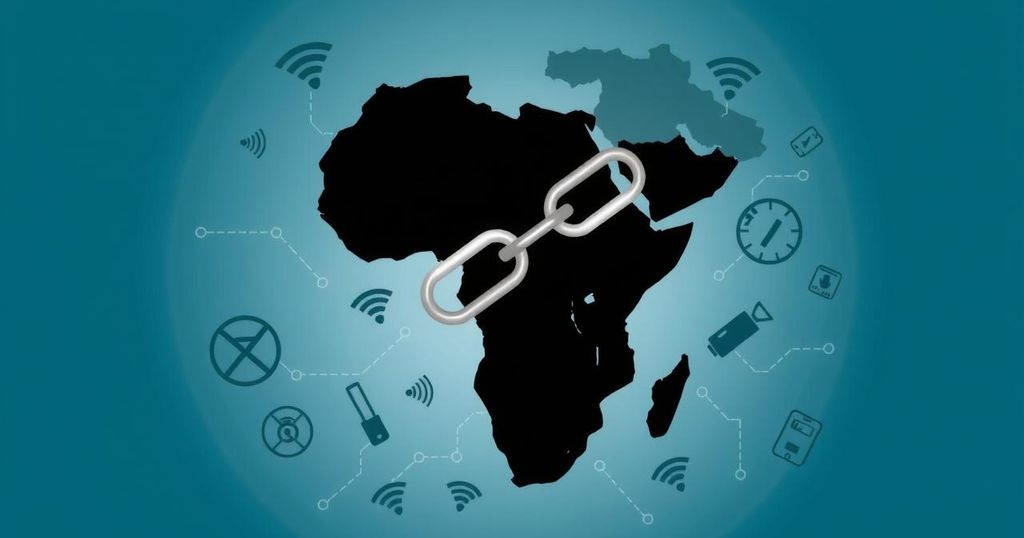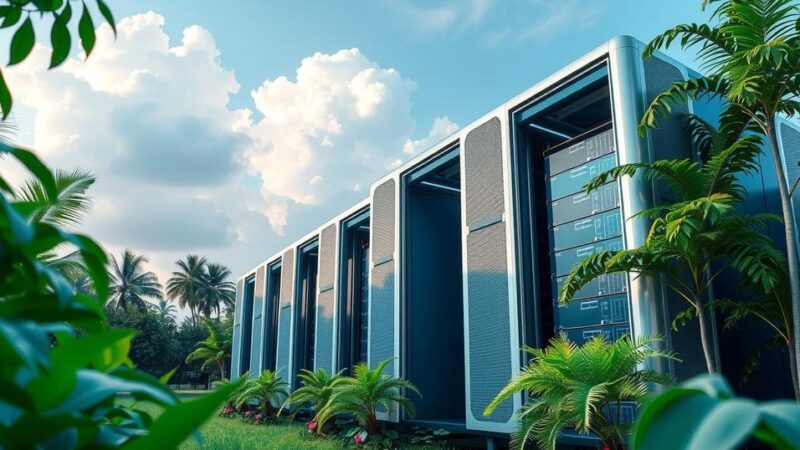In 2024, Africa saw a record 21 internet shutdowns across 15 countries, surpassing previous years. This trend was largely due to political instability and conflicts. Telecommunication providers are criticized for complicity in these violations, and the situation reflects a global rise in internet blackouts. While a resolution by the African Commission on Human and Peoples’ Rights aimed to address the issue, significant challenges persist.
In 2024, Africa experienced an unprecedented increase in internet shutdowns, with 21 blackouts reported in 15 countries, as highlighted in a report by Access Now and the KeepItOn coalition. This surge surpasses the previous record of 19 shutdowns during 2020 and 2021. Countries such as Comoros, Guinea-Bissau, and Mauritius joined others like Burundi, Ethiopia, and Kenya in implementing these access restrictions, affecting millions of citizens.
The report reveals that internet shutdowns predominantly occur in response to political instability, protests, and conflicts, with significant restrictions noted during election periods. Additionally, militias and non-state actors also contributed to these disruptions, emphasizing the seriousness of the situation. Felicia Anthonio, the KeepItOn campaign manager at Access Now, noted the complicity of telecommunication providers in this violation of rights, referring to the UN’s guidelines on business and human rights.
Globally, the trend of internet shutdowns is on the rise, with 296 reported in 54 countries compared to 283 shutdowns across 39 countries the previous year. The data reflects the dire circumstances as Access Now states this is the worst situation since they began monitoring in 2016. The report emphasized, “Behind each of the 1,754 shutdowns since 2016 is a story of people and communities cut off from the world and each other, often during political upheaval, unrest, violence and war.”
By late 2024, at least five African nations had maintained shutdowns for over a year. Notably, Uganda continued to restrict access to the social network Meta despite ongoing talks, while Annobon in Equatorial Guinea faced a prolonged blackout following protests related to environmental issues.
In response to the situation, the African Commission on Human and Peoples’ Rights adopted a resolution in March 2024 aimed at reversing the trend of internet shutdowns. However, Anthonio highlighted ongoing challenges, stating, “It’s rather unfortunate we saw more election-related shutdowns in Africa and other places in 2024 despite the adoption of the ACHPR resolution last year.” Nevertheless, she acknowledged the resolution serves as a critical resource for civil society advocacy, noting improvements in certain instances, such as the reversal of shutdown orders in Mauritius and South Sudan.
The alarming rise in internet shutdowns across Africa in 2024 highlights a troubling trend where access is weaponized against citizens during times of political unrest. The report from Access Now underscores the responsibility of governments and telecommunication providers in upholding digital rights, while international efforts such as the ACHPR resolution aim to combat these violations. Despite some progress, the need for continued advocacy in the face of increasing shutdowns remains crucial for safeguarding access to information and communication.
Original Source: www.theguardian.com






